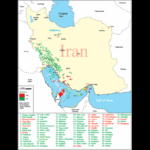A German court has sentenced a Syrian doctor to life imprisonment for committing acts of torture and murder during Bashar al-Assad’s violent repression of dissent in Syria. The verdict, delivered by the Frankfurt Higher Regional Court on Monday, marks a major development in international justice and highlights the use of Germany’s universal jurisdiction to prosecute crimes committed abroad.
Alaa Mousa, 40, was convicted of multiple crimes against humanity, including torture and murder, stemming from his actions between 2011 and 2012, at the height of Syria’s civil war. The court found that Mousa’s conduct was not only consistent with, but actively contributed to the Assad regime’s systematic campaign of brutal repression against opposition figures.
Presiding Judge Christoph Koller stated during sentencing that the case illustrated the “brutality of Assad’s dictatorial, unjust regime,” underscoring the severity and political context of the crimes. The case, which spanned over three years, has been hailed as one of the most important applications of Germany’s principle of universal jurisdiction — a legal doctrine that permits prosecution of egregious crimes regardless of where they occur or the nationality of those involved.
Prosecutors presented evidence that Mousa tortured detainees at military hospitals in Damascus and Homs on at least 18 occasions. These facilities, purportedly meant for treatment, were in reality hubs of abuse where political prisoners endured horrific violence disguised as medical care. Witnesses testified to gruesome scenes in which patients were burned, beaten, and even killed under Mousa’s supervision.
In one harrowing account, Mousa was said to have poured flammable liquid on a detainee’s wounds and set them alight before kicking the man in the face, destroying his teeth. In another incident, he was accused of injecting a prisoner with a lethal substance after the man refused to be beaten. Survivors described the Damascus hospital where some of these abuses occurred as a “slaughterhouse”.
Mousa, who arrived in Germany in 2015 on a skilled-worker visa, had been working as an orthopaedic doctor until his arrest in 2020. According to colleagues, he led a quiet professional life, and many expressed shock at the allegations, with one describing him as “unremarkable” and unassuming.
Throughout the trial, which began in 2022, Mousa denied the charges of personally torturing or killing patients, though he admitted to having witnessed abuse. He claimed he was unable to act due to fear for his own safety. “I felt sorry for them, but I couldn’t say anything, or it would have been me instead of the patient,” he told the court.
The case gained additional attention as it concluded months after Bashar al-Assad was deposed in December 2024, shifting international focus back onto the atrocities committed during his rule. The verdict serves not only as a measure of justice for the victims, but also as a stark reminder of the deep and enduring scars left by Syria’s civil war.
Legal experts and human rights advocates have hailed the ruling as a landmark in holding perpetrators of state-sponsored atrocities accountable, even when they have fled to distant countries and resumed seemingly ordinary lives.






